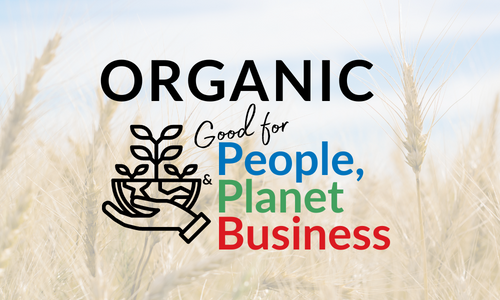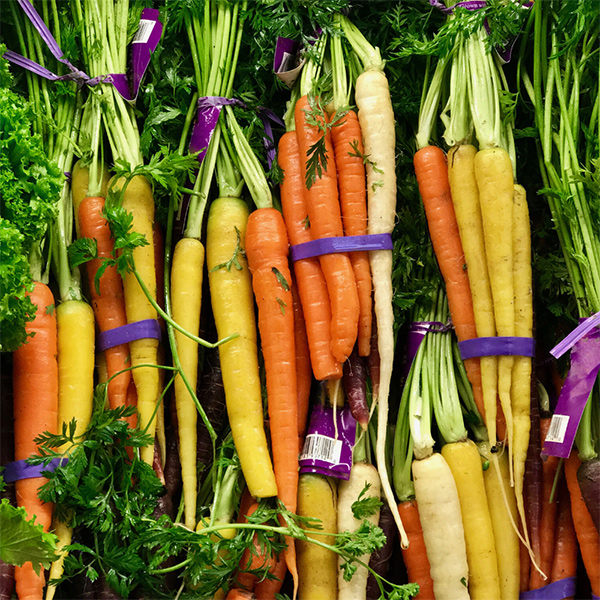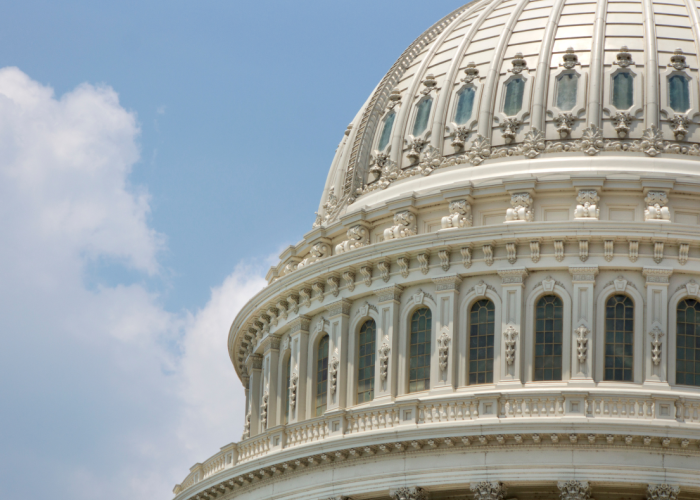The Agricultural Marketing Service hosts a number of programs of relevance to the organic industry.
- The National Organic Program is housed within the AMS. You can subscribe to the NOP Organic Insider or review the NOP Organic Integrity Quarterly, both of which will keep you informed on what is going on at NOP. Generally, NOP:
- Sets the standards for organically produced products, with the advice of the National Organic Standards Board.
- NOP guidance documents, policy memoranda, and instructions for complying with NOP regulations.
- Accredited organic certifying agents.
- Establishes formal recognition agreements with foreign governments.
- Certifies organic operations.
- Investigates consumer complaints.
- Ensures compliance with the organic standards.
- Reimburses eligible producers and handlers for a portion of the costs of organic certification through the Organic Certification Cost Share Program.
- Find your local service center for organic certification cost share.
- Sets the standards for organically produced products, with the advice of the National Organic Standards Board.
- Market News Service is also part of AMS. Market News provides up-to-date market information for a variety of organic commodities, including fruits and vegetables, livestock, grains, poultry, dairy, and cotton.
The Risk Management Agency helps producers manage their business risks through market-based risk management solutions, such as the programs of the Federal Crop Insurance Corporation.
RMA offers federal crop insurance products, and depending on the crop and type of insurance, specific features related to organic production may apply. RMA maintains an organic crop insurance coverage fact sheet and an organic crop insurance issues webpage.
The Economic Research Service is USDA’s principal social science research agency.
Relevant to the organic sector, it conducts research on organic agriculture generally, organic price data, organic production data, organic commodity costs and returns, and organic product distribution data.
The National Agricultural Statistics Service conducts surveys and publishes reports that cover many facets of U.S. agriculture.
In particular, NASS prepares:
- The Census of Agriculture, which includes questions about land acreage and organic product sales.
- The Organic Production Survey, a wide-scale survey of the organic industry, including acreage, sales and production.
- The Agricultural Resource Management Survey, which includes information about organic cropping practices.
- National-level data on certified organic mushroom producers.
The National Institute of Food and Agriculture supports external research, education and extension.
It partners to develop and support diverse projects related to organic agriculture. NIFA addresses the needs of organic agriculture through formal grants and competitive funding. Particular programs of interest to the organic sector include:
- The Organic Transitions Program, which aims to improve the competitiveness of organic livestock and crop producers, and those transitioning to organic practices.
- The Organic Agriculture Research and Extension Initiative, which is a competitive grant program that aims to solve critical organic agriculture issues.
- The Sustainable Agriculture Research and Education program, which provides competitive grants for research, education and outreach programs that support sustainable agricultural systems. Unlike other grants, producers are eligible for SARE grants.
- Other programs that may be of interest include the Beginning Farmer Rancher Development Program, Small Business Innovation Grants, NIFA educational programs, and the Agriculture and Food Research Initiative.
The Foreign Agricultural Service is responsible for USDA’s international activities, including market development, trade agreements and negotiations, and the collection and analysis of statistics and market information.
In particular, FAS administers:
- The Global Agricultural Trade Database, which includes organic trade data for monthly import and export volume of select organic commodities.
- The Global Agricultural Information Network, which has reports on the agricultural situation (including organic production and demand) in over 130 countries.
- The Market Access Program, which provides funding to encourage the development, maintenance and expansion of commercial export markets for agricultural commodities.
- The Technical Assistance for Specialty Crops Program, which provides funding to support projects that address technical barriers to the export of U.S. specialty crops.
The Agricultural Research Service is USDA’s principal in-house scientific research agency, responsible for developing solutions to agricultural problems.
Within ARS is the National Agricultural Library, one of the world’s largest agricultural information collections.
- The NAL houses specific projects and programs on organic agriculture; information access tools; and historical USDA publications related to organic agriculture.
The Farm Service Agency manages farm commodity programs; farm ownership, operating and emergency loans and guarantees; conservation and environmental programs; emergency and disaster assistance; energy programs; and domestic and international food assistance.
Relevant to the organic industry, FSA administers:
- The Transition Incentives Program, which provides incentive for retired or retiring owners or operators to transition land enrolled in the Conservation Reserve Program to a beginning or socially disadvantaged farmer or rancher for production using sustainable methods.
- The Conservation Loan Program, which provides loans which can cover conversion to organic production systems.
The Natural Resources Conservation Service encourages conservation of natural resources on privately owned lands through technical and financial assistance to make land more productive and the environment healthier.
NRCS partners with certified and transitioning organic producers to design conservation practices, and offers a number of resources for organic producers. In particular, three programs have specific provisions supporting conservation in organic production systems:
- The Environmental Quality Incentives Program Organic Initiative provides financial and technical assistance payments for conservation practices related to certified or transitioning organic operations.
- The Conservation Stewardship Program encourages producers to improve, manage and maintain existing conservation activities, and undertake additional ones. Producers may initiate organic certification while participating in a CSP contract.
- The Agricultural Management Assistance Program provides financial and technical assistance to agricultural producers in 16 states to help them with the costs of organic certification.
The Animal and Plant Health Inspection Service promotes plant and animal health, regulates imports of agricultural products, regulates GMOs, and administers the Animal Welfare Act.
APHIS also responds to animal and plant health emergencies, such as disease outbreaks like citrus greening.
The Food Safety and Inspection Service ensures that the commercial supply of meat, poultry and processed egg products is safe, wholesome and correctly labeled and packaged.
FSIS involvement in organic is limited to labeling.
Rural Development increases rural residents’ economic opportunities and improves their quality of life by partnering to fund projects that bring services to rural communities.
There are a variety of grant programs, including:
- Value-Added Producer Grants
- Business and Industry Loan Guarantees
- Appropriate Technology Transfer for Rural Areas
- Rural Business Enterprise Grants
- Rural Business Opportunity Grants
- Rural Cooperative Development Grants
The Center for Nutrition Policy and Promotion develops and promotes dietary guidance that links current scientific research to the nutrition needs of consumers.
CNPP is the lead agency within the USDA for establishing the Dietary Guidelines for Americans. Research comparing conventional and organically produced foods was addressed in the 2010 Dietary Guidelines Report.










